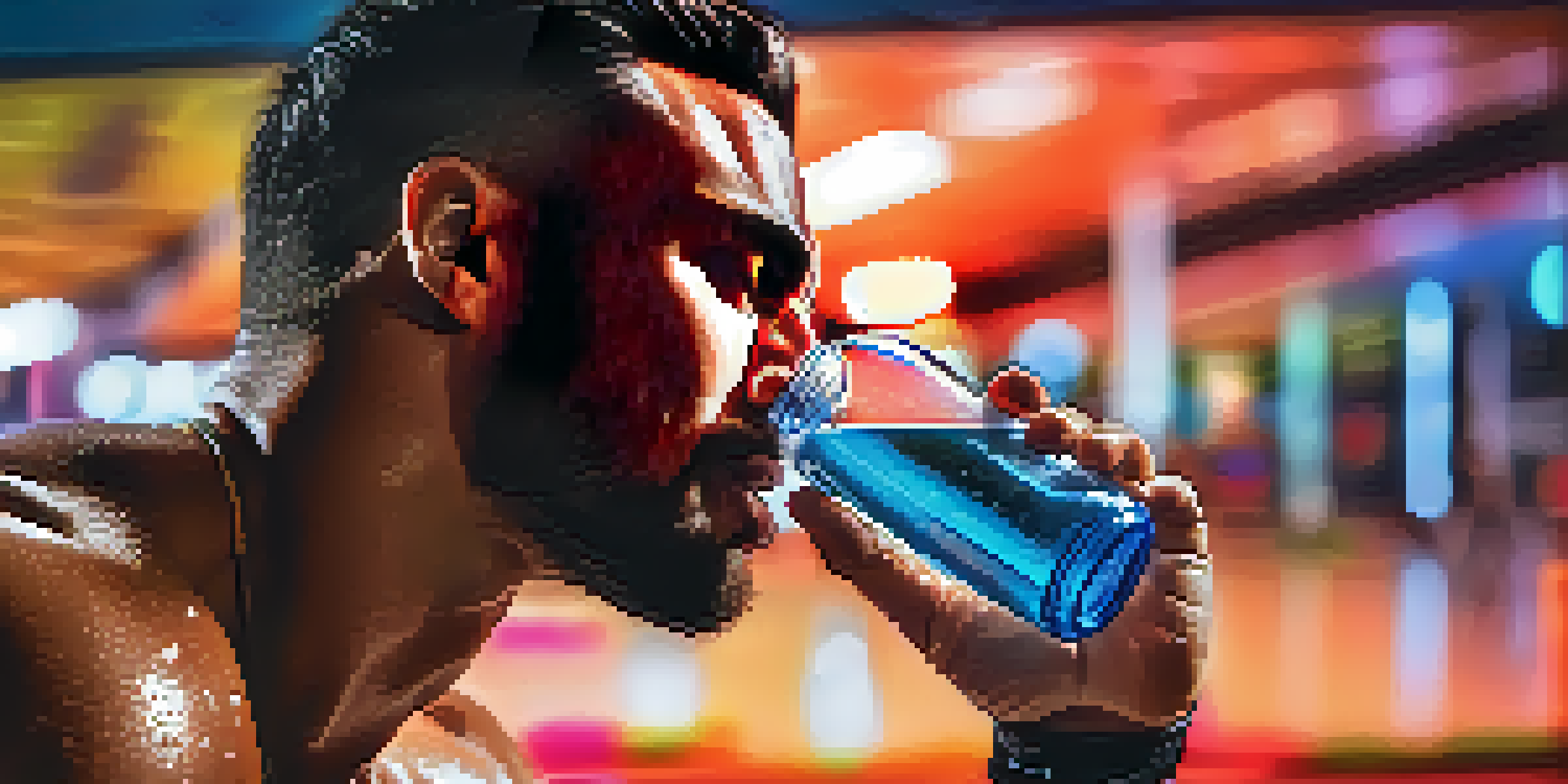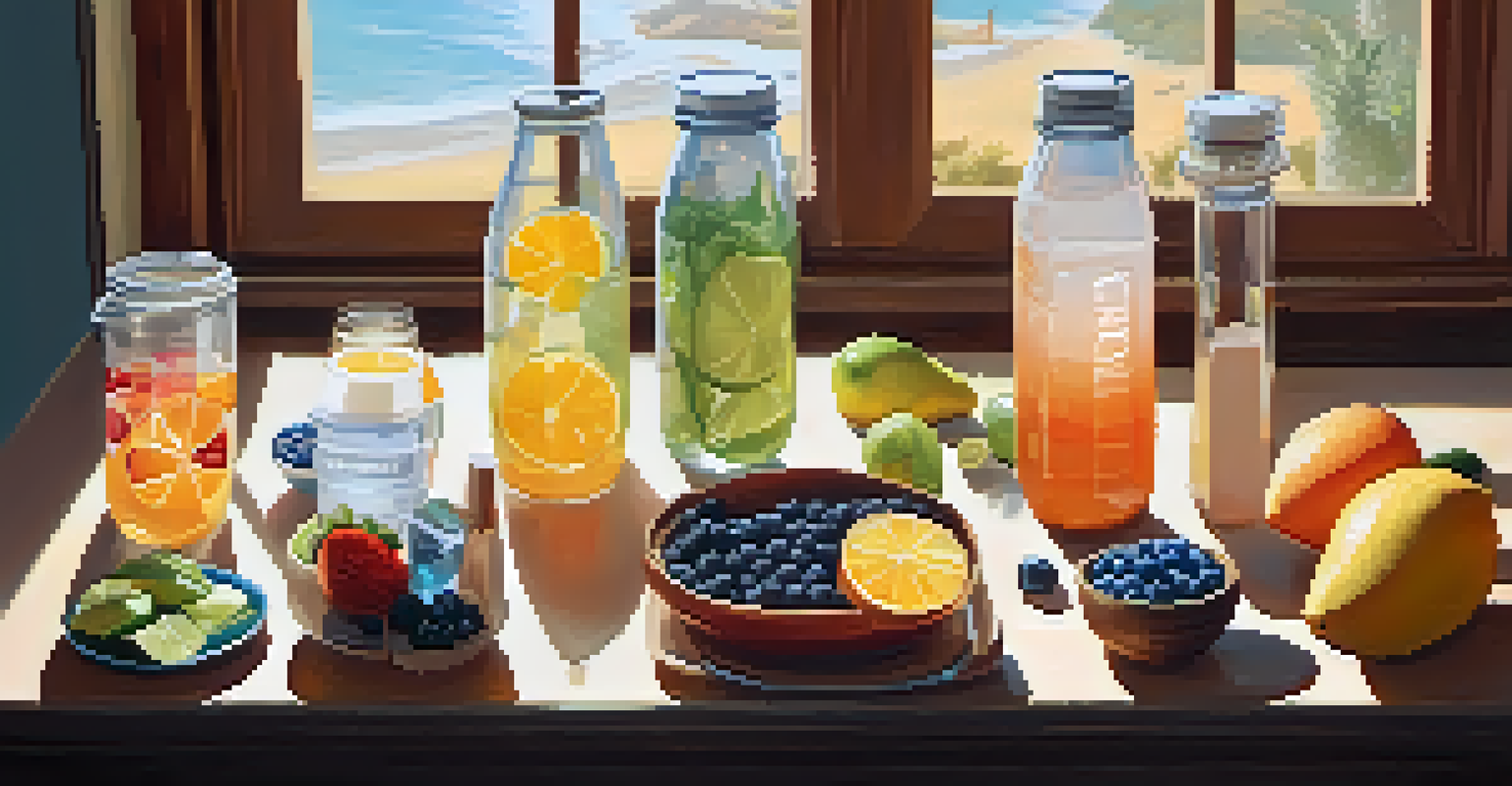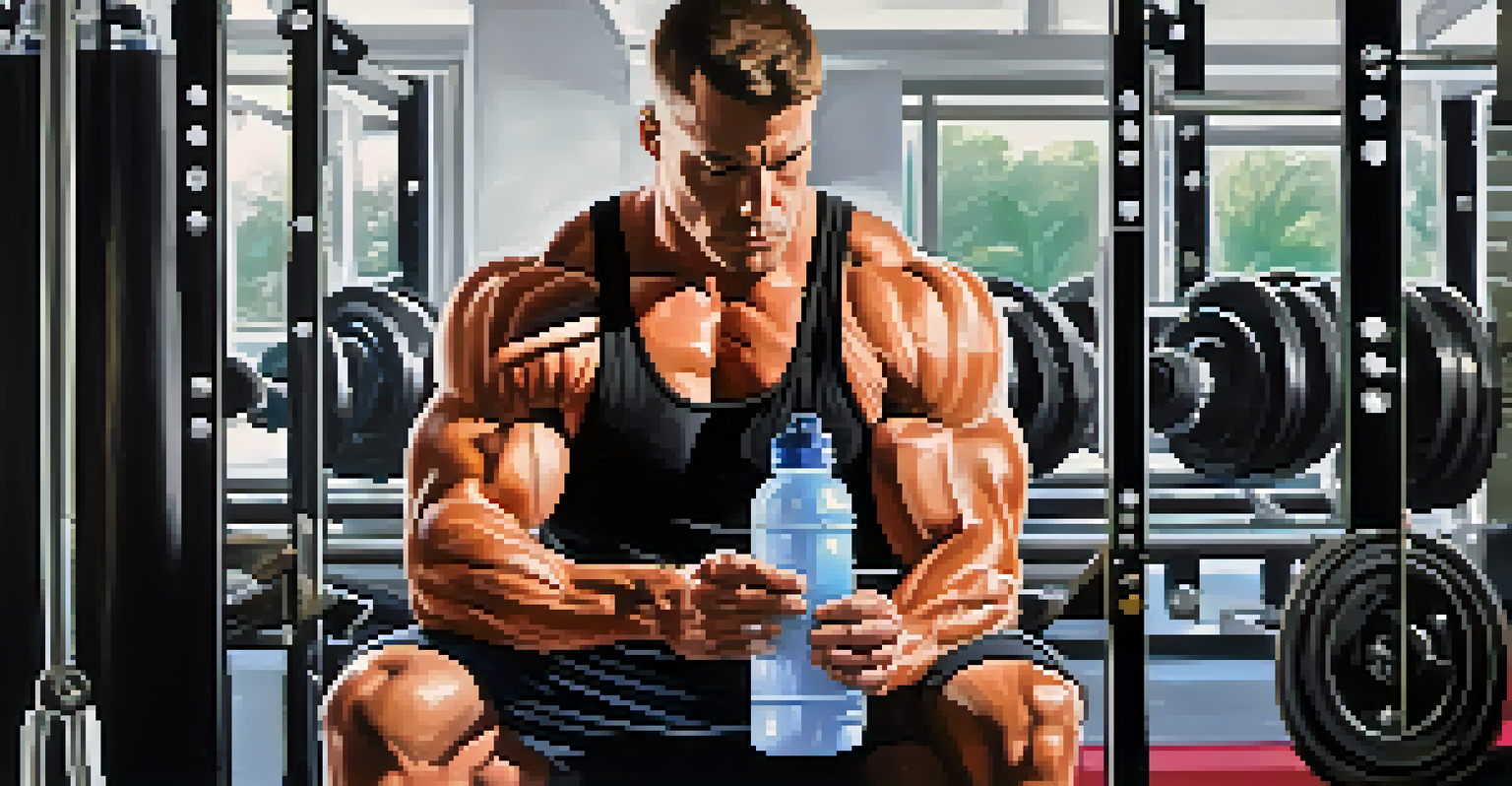The Connection Between Hydration and Muscle Cramps in Bodybuilders

Understanding Muscle Cramps and Their Causes
Muscle cramps are sudden, involuntary contractions that can be quite painful, especially for bodybuilders. They often occur during intense workouts or after prolonged periods of exertion. Factors like dehydration, electrolyte imbalances, and overuse can trigger these cramps, making it essential to understand their root causes.
Water is the source of life, and without it, the body cannot function properly.
For bodybuilders, cramping can hinder performance and disrupt workout routines. Imagine you're in the middle of a heavy squat session, and suddenly, a cramp hits your leg—frustrating, right? Knowing what leads to these cramps can help you take preventive measures and keep your workouts on track.
Common causes of cramps include inadequate hydration, which can lead to muscle fatigue and electrolyte loss. By recognizing these factors, you can better equip yourself to combat cramps and maintain your training intensity.
The Role of Hydration in Muscle Function
Hydration is crucial for overall muscle function and performance. When your body is properly hydrated, it ensures that muscles receive the oxygen and nutrients they need to perform optimally. Think of water as the oil that keeps the engine running smoothly; without it, things can seize up.

Water helps regulate body temperature and aids in the transportation of electrolytes, which are essential for muscle contractions. If you're not drinking enough fluids, your muscles may not function as effectively, leading to increased fatigue and a higher likelihood of cramps.
Hydration Prevents Muscle Cramps
Staying properly hydrated is essential for bodybuilders to avoid painful muscle cramps during workouts.
For bodybuilders, even mild dehydration can impact strength and endurance. Therefore, maintaining optimal hydration levels is vital for peak performance and minimizing the risk of muscle cramps during workouts.
How Dehydration Leads to Muscle Cramps
When you engage in strenuous exercise, your body loses water through sweat. If you don't replenish that lost fluid, dehydration sets in, which can lead to muscle cramps. Think of it like a plant wilting without water—your muscles can become stiff and more prone to cramping when dehydrated.
Hydration is key to performance; if you're not drinking enough water, you're not giving your body the fuel it needs.
Dehydration affects electrolyte balance, particularly sodium, potassium, and magnesium. These minerals are essential for muscle contractions, and an imbalance can disrupt communication between your nerves and muscles, leading to cramps.
It's essential to understand that dehydration can occur even if you don't feel thirsty. By the time you realize you're dehydrated, your muscles may already be at risk of cramping. Staying ahead of hydration is key for bodybuilders aiming to prevent cramps.
Signs You May Be Dehydrated
Recognizing the signs of dehydration is crucial for bodybuilders. Common symptoms include thirst, dark urine, fatigue, and dizziness. If you notice any of these signs, it’s a signal that your body needs more fluids—like a warning light on your car dashboard.
In addition to these symptoms, muscle cramps can also serve as a warning that dehydration is setting in. If you experience cramps during your workouts, it may be time to reassess your hydration strategy.
Recognize Dehydration Symptoms
Being aware of dehydration signs, such as dark urine and muscle cramps, can help bodybuilders take timely action.
Being proactive about hydration can prevent these symptoms from escalating into more severe issues. By listening to your body and responding to its needs, you can maintain optimal performance and reduce the risk of cramps.
Best Practices for Staying Hydrated
Staying hydrated doesn’t have to be complicated. A good rule of thumb is to drink water regularly throughout the day, not just during workouts. Carrying a water bottle with you can serve as a constant reminder to sip regularly.
During intense training sessions, consider integrating electrolyte-rich drinks. These can help replenish lost minerals and maintain hydration levels, especially in hot or humid conditions. Think of it as giving your body a little extra fuel to keep going strong.
Additionally, monitor your hydration status by checking the color of your urine. Light yellow typically indicates good hydration, while darker shades signal the need for more fluids. Making hydration a priority can help you avoid unwanted muscle cramps.
The Importance of Pre- and Post-Workout Hydration
Hydration should be a focus before and after your workouts, not just during them. Drinking water before exercise prepares your muscles and joints for the upcoming strain, much like warming up before lifting weights. This preemptive measure can help reduce the risk of cramps later on.
Post-workout hydration is equally essential, as it aids in recovery and helps replenish lost fluids. Consider having a glass of water or a sports drink after your workout to kickstart the recovery process and prevent dehydration-related issues.
Hydrate Before and After Workouts
Prioritizing hydration before and after exercise enhances performance and aids recovery, reducing the risk of cramps.
Incorporating both pre- and post-workout hydration into your routine can enhance your recovery and performance. By making hydration a priority at every stage of your workout, you’ll be better equipped to fend off muscle cramps.
Conclusion: Hydration is Key for Bodybuilders
In conclusion, hydration plays a vital role in preventing muscle cramps for bodybuilders. By understanding the connection between fluid intake and muscle function, you can take actionable steps to stay hydrated and perform at your best. Remember, your muscles rely on proper hydration to function efficiently.
Making hydration a priority in your training routine can enhance your performance, reduce the risk of cramps, and help you achieve your bodybuilding goals. Think of hydration as the foundation of your fitness journey—without it, everything else can crumble.

So, fill up that water bottle, keep an eye on your hydration levels, and say goodbye to muscle cramps. With a little attention to your fluid intake, you’ll be well on your way to a more successful and enjoyable bodybuilding experience.